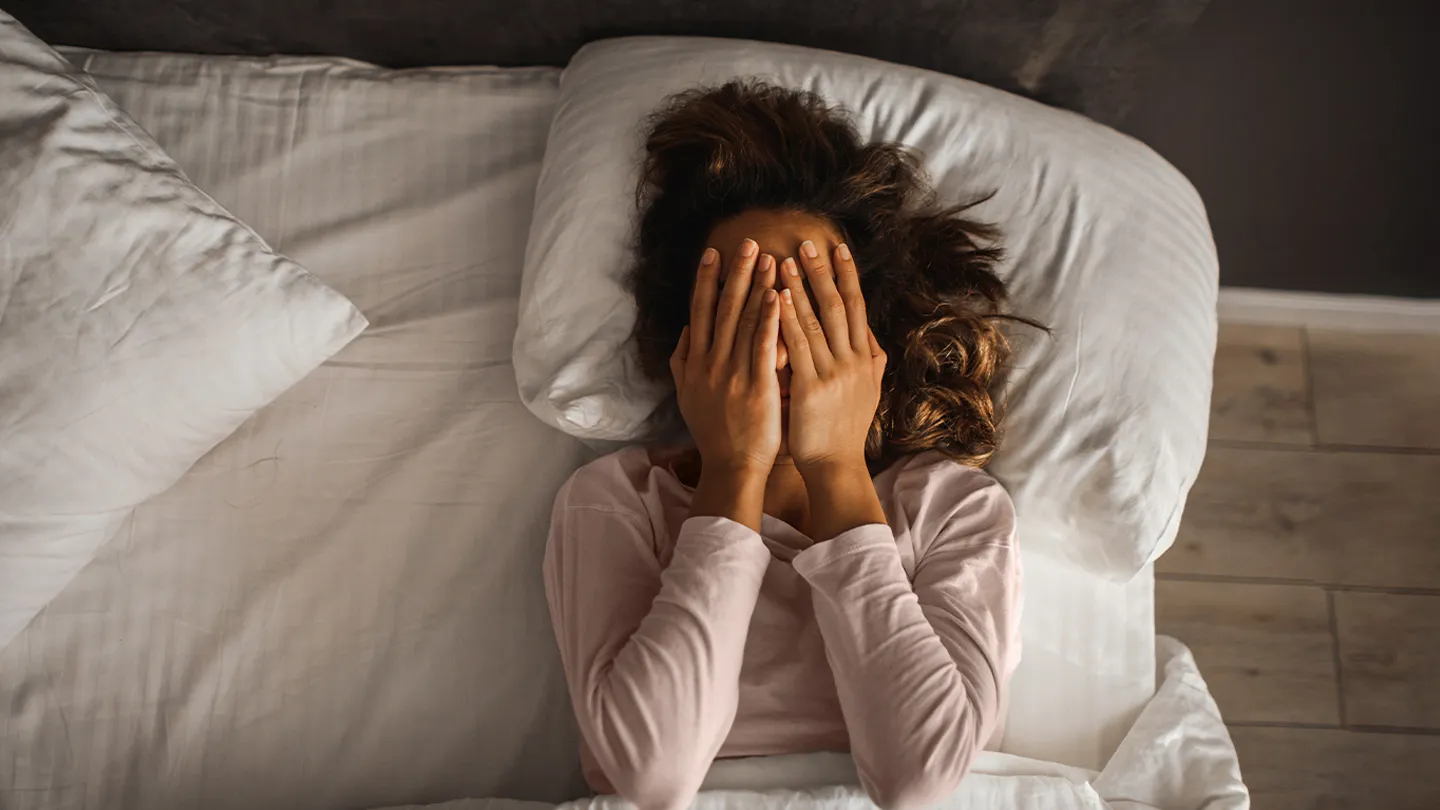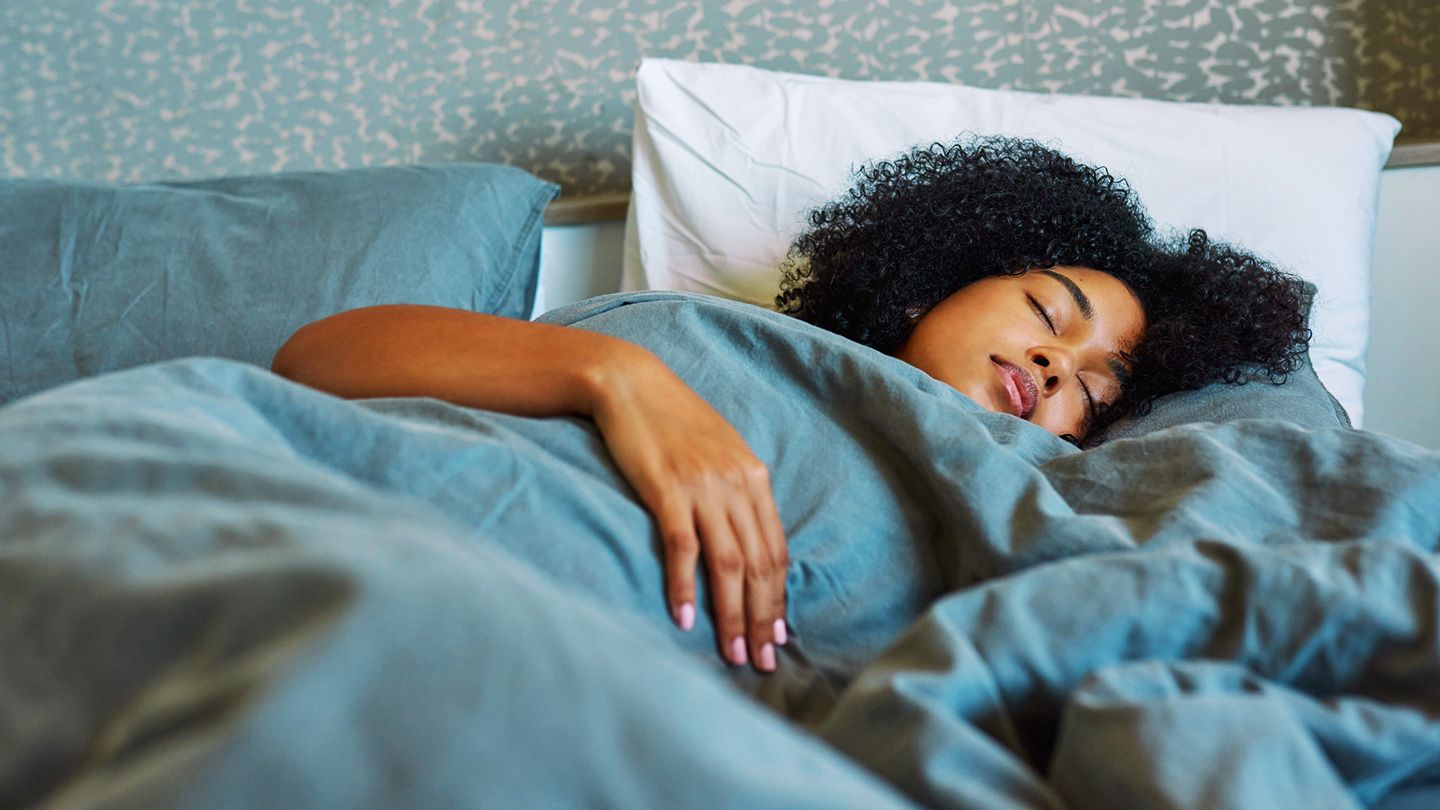Hey there! If you're reading this, chances are you've started taking Zepbound and found yourself wide awake at 2 AM, scrolling through your phone and wondering what on earth is going on. Trust me, I've been there well, not literally, but I've talked to enough people who've had that exact experience to know it's real and frustrating.
You're probably asking yourself: is this medication supposed to do this? Am I doing something wrong? And most importantly, how do I get my good night's sleep back?
Here's what I want you to know right off the bat: insomnia isn't actually listed as a direct side effect of Zepbound in clinical studies. But that doesn't mean your sleep struggles aren't valid or real. Sometimes the most helpful information comes from real people sharing their experiences, not just what's written in medical journals.
What Makes Zepbound Special
Let's start with the basics. Zepbound (tirzepatide) is pretty incredible stuff. It works as a dual GLP-1 and GIP receptor agonist, which is a fancy way of saying it helps slow down your digestion, reduces your appetite, and helps stabilize your blood sugar. Think of it like having a personal assistant for your metabolism except sometimes that assistant gets a little too enthusiastic about keeping you alert.
What's fascinating is that the FDA actually approved Zepbound for treating severe obstructive sleep apnea recently. Yes, you read that right it can actually help with sleep issues in certain patients. So why would some people experience the opposite effect? Life's funny that way, isn't it?
The Great Insomnia Mystery
This is where things get interesting. In official clinical trials, insomnia doesn't show up as a common side effect. We're talking less than 1% of people reporting sleep issues directly. But jump over to social media or patient forums, and you'll find stories from real users who've definitely had some sleepless nights since starting Zepbound.
Some people even report that their sleep has improved with Zepbound. So what gives? Why this mixed bag of experiences? Well, think of it like this everyone's body is like a unique fingerprint, and sometimes medications interact with our systems in ways that aren't captured in controlled studies.
Why Sleep Gets Disrupted
Let's dive into the possible reasons why you might be counting sheep instead of catching them. The first and most common culprit? Good old-fashioned gastrointestinal side effects. Nausea, bloating, diarrhea, or constipation can be real sleep killers, especially when they decide to make their presence known right when you're trying to drift off.
But it goes deeper than just stomach issues. Your body's hormonal orchestra gets a bit of a shake-up when you start Zepbound. Hormones like ghrelin (the hunger hormone) and leptin (the satiety hormone) don't just control your appetite they're also connected to your circadian rhythm, that internal clock that tells you when to feel sleepy or alert.
Picture your appetite suppression during the day as a ripple effect in a pond. That suppressed hunger might come back to bite you at night when your blood sugar drops, leaving you wide awake and suddenly very interested in midnight snacking. It's like your body is saying, "Hey, we missed lunch, remember?"
And let's not forget about all those lifestyle changes that come with starting a new weight loss journey. New diet plans, workout routines, intermittent fasting windows they can all subtly mess with your internal clock. That extra evening workout or pushing your eating window later might seem harmless, but your body clock is more sensitive than you think.
The Timing Factor
Here's something that might surprise you when you take Zepbound can make a huge difference in how it affects your sleep. Taking it in the morning is generally recommended because the gastrointestinal side effects tend to fade after a few hours, leaving you more comfortable by bedtime.
If you've been taking it at night, it might be worth chatting with your healthcare provider about switching to morning dosing. It's a small change that can make a world of difference, like moving your alarm clock from your nightstand to across the room inconvenient at first, but ultimately helpful.
Managing Those Sleepless Nights
Okay, let's get practical. You're here because you want solutions, not just explanations. Here are some strategies that have helped many people navigate sleep issues while on Zepbound:
First up, consider your timing. Morning doses are your friend for a reason. The side effects that might keep you up nausea, fatigue, those general "I-don't-feel-quite-right" feelings usually wear off by bedtime when you take it earlier in the day.
Your sleep hygiene routine matters more than ever right now. I know, I know it sounds boring compared to chasing down a good night's sleep, but stick with me. Consistent bedtime routines, minimizing screen time before bed (yes, that means putting the phone down), avoiding caffeine and large meals late in the day, and keeping your bedroom cool and dark can work wonders.
Think of sleep hygiene like building a cozy nest for yourself. Every small adjustment the right temperature, the perfect pillow, a calming bedtime ritual adds up to create the perfect environment for rest.
Food and Timing Adjustments
Your eating habits play a huge role in how you sleep on Zepbound. If you're feeling hungry or nauseous before bed and I've heard from enough people to know this is a real thing try having a light snack that won't upset your stomach.
Lean protein combined with complex carbs works well for many people. Think baked sweet potato with a little Greek yogurt, rather than reaching for ice cream or chips. You want to satisfy that hunger without giving your digestive system too much work to do while you're trying to sleep.
Avoid fatty, spicy, or sugary foods close to bedtime. These can trigger the very gastrointestinal symptoms that might already be keeping you awake, creating a perfect storm of discomfort and restlessness.
Exercise Considerations
Staying active is great for your overall health and can actually improve sleep quality when done right. The key is timing and intensity. Those intense evening workouts might be sabotaging your sleep efforts without you even realizing it.
Instead of high-intensity HIIT sessions in the evening, try low-impact stretching or gentle yoga. Think of it as teaching your body how to wind down rather than ramping up. Your future well-rested self will thank you.
When to Seek Professional Help
Let's be real some sleep issues are normal when starting a new medication, but others might need professional attention. If you're experiencing severe fatigue, signs of dehydration, chest pain, palpitations, or acute confusion, it's time to call your doctor.
Also, don't ignore persistent sleep problems that last beyond the first week or seem to be getting worse instead of better. Your healthcare provider can evaluate whether other medications or underlying health conditions might be contributing to your sleep issues.
They might suggest adjustments to your Zepbound regimen or other medications, refer you for a sleep study, or in some cases, consider temporarily pausing Zepbound if sleep problems are significantly interfering with your quality of life.
The Bigger Picture
Here's the thing that gives me hope when talking to people about Zepbound and sleep issues the benefits often outweigh the temporary challenges. Clinical studies show Zepbound can lead to 15-20% body weight loss, improvements in blood sugar control, and even reductions in sleep apnea severity.
Think of those initial sleepless nights like the awkward first few days at a new job. Everything feels off, you're not sure where things go, and you're constantly checking if you're doing it right. But give it time, make a few adjustments, and suddenly everything clicks into place.
Your quality of life improves when you're both sleeping well AND losing weight. It's not about choosing between the two it's about finding that sweet spot where both are working in harmony.
Real Talk and Moving Forward
No, Zepbound doesn't technically cause insomnia based on clinical data. But you know what? Your real-world experience matters just as much. The ripple effects from gut discomfort to hormonal shifts can definitely affect your sleep, especially in those early weeks.
The beauty of figuring this out is that there are so many levers you can pull. Changing when you take it, adjusting your diet timing, modifying your sleep routine small changes that can make a big difference.
And please, please, please don't stop taking Zepbound without talking to your doctor first. I know the temptation is real, especially when you're exhausted and frustrated. But your healthcare provider can help you navigate these issues while preserving all that hard-earned progress.
Every person's journey with Zepbound is unique. Some sail through with minimal side effects, others need to work through a few bumps along the way. Both experiences are completely valid, and both can lead to incredible results.
Have you experienced sleep issues with Zepbound? I'd love to hear about your experience in the comments below. Chances are, someone else has had that exact same weird night owl moment, and sharing our stories helps all of us feel a little less alone on this journey.
Remember, temporary hiccups don't define your entire experience. Sometimes those short-term challenges are just the price of admission for long-term wins. Keep going better sleep and better health are within reach.
Disclaimer: This article is for informational purposes only and does not constitute medical advice. Always consult with a healthcare professional before starting any new treatment regimen.
Related Coverage
Discover natural remedies for insomnia from Earth Clinic. Explore holistic techniques, herbal remedies, relaxation practices, and lifestyle adjustments to combat sleep disturbances and promote restful nights....
Discover the often overlooked spiritual causes of insomnia and learn how to cultivate inner peace through practices like mindfulness, gratitude, and creating a nurturing sleep environment....
Insomnia can often be treated with natural remedies like better sleep habits, relaxation techniques, and avoiding caffeine. Prescriptions or therapy may also help....
Learn about lymphoma cancer, its symptoms, treatments, and what the orange lymphoma awareness ribbon represents in supporting patients and funding research....
Struggling with poor sleep? Try relaxing pre-bed routines like warm baths, calming music and herbal tea. Also optimize your bedroom and use natural remedies....
Learn the right methods for safely handwashing and loading dishwashers to prevent bacteria. Plus proper use of water temperature, dishcloths, draining, and maintenance....
Lunesta side effects include metallic taste, drowsiness, and rare sleep behaviors. Find dosage tips and safety advice for sleep aid....
Learn if Medicare CBT for insomnia is covered, typical co‑pay costs, and steps to get this proven sleep therapy approved....
Doctors recommend waiting at least 2 weeks after finishing pneumonia medications before flying. Tips include continuing meds, using supplemental oxygen, preventing reinfection....
Braces teeth cartoons have become a popular genre due to the relatability of orthodontic experiences. Explore the history, humor, and impact of braces cartoons....







